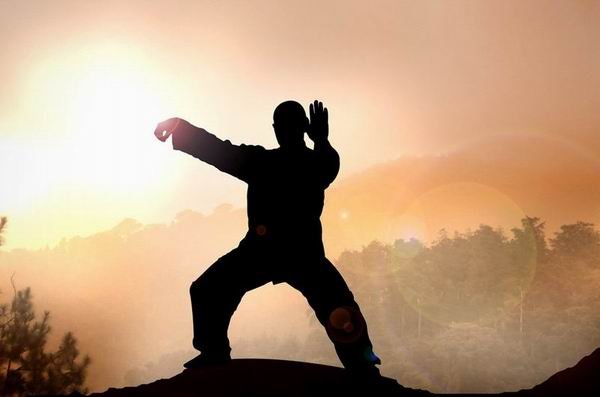Reishi and yangsheng, Qigong
Qigong (alternatively spelled chi gung or chi kung) is a form of gentle exercise composed of movements that are repeated a number of times, often stretching the body, increasing fluid movement (blood, synovial and lymph) and building awareness of how the body moves through space.
When you practice and learn a qigong exercise movement, there are both external movements and internal movements. These internal movements or flows in China are called neigong or “internal power”. These internal neigong movements make qigong a superior health and wellness practice.
The internal movements also differentiate qigong from almost every other form of exercise in the West that often emphasizes prolonged cardiovascular movements (such as in running and biking) or that focus on muscular strength training (weightlifting).
China’s 3,000-Year-Old System of Self-Healing
The effectiveness of qigong has been proven in China by its beneficial impact on the health of millions of people over thousands of years. Developing the life force, or chi, is the focus of Taoism, China’s original religion/philosophy. The Taoists are the same people who brought acupuncture, Chinese herbal medicine, bone setting, and the yin/yang concept to the world.
Unfortunately, most of the specifics of these valuable contributions have until just recently been blocked from Western awareness by immense cultural and language barriers. These barriers are beginning to break down to an extent in acupuncture, but with regard to qigong they are still very much in place.
For most people, the first and foremost benefit of qigong lies in the relief or prevention of chronic health problems. The range of maladies that have been helped by qigong in China include cancer, internal organ ailments, poor circulation, nerve pain, back and joint problems and general physical disease.
Reishi Mushroom
Also known Lingzhi (Chinese), Reishi is considered by many people to be the ultimate tonic herb. It is widely renowned in the Orient as the mushroom of immortality and the herb of good fortune. The best Reishi is the red variety known as Ganoderma lucidum. Reishi is now cultivated in China, and the very best Reishi is grown on Duanwood logs by organic means, and thus it is known as Duanwood Reishi. Hothouse Reishi and Reishi mycelium are of inferior quality. Wild Reishi is also available, and high quality wild red Reishi is said to be a premier Shen tonic. Reishi has been demonstrated in research done in China and Japan to be a significant immune system enhancing agent that also protects the various organs and tissues of the body. It is the supreme Shen tonic of Chinese tonic herbalism, and is also considered to be a major Qi tonic. Reishi has an immediate calming influence, and over time is believed to help enhance wisdom, which may lead to true spiritual insight. Reishi protects the liver from poisons and has a very powerful regulating effect on people who experience allergies. Again, every Daoist that has ever lived in China consumed Reishi as often as possible. Everybody should consume Duanwood or wild Reishi every day, and practitioners of Qigong or other forms of Daoist yoga should never miss a day.







Recent Comments